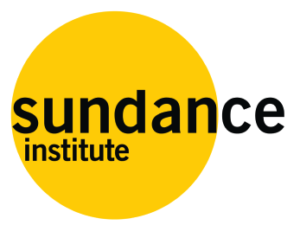The Latest
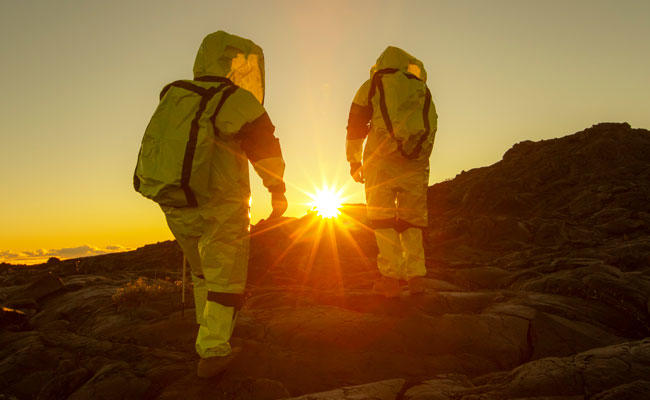
Nine Independent Projects Unite Art and Science
Sundance Institute and Science Sandbox Celebrate
Innovative Nonfiction Storytelling With Expanded Tailored, Multifaceted Support
Park City, UT — Sundance Institute, in collaboration with Science Sandbox, an initiative of Simons Foundation, announced the expansion of the Science Sandbox Nonfiction Initiative, alongside the initial nine science-focused independent projects selected for support this year. The initiative, first introduced in 2018, aims to elevate the voices of independent artists working at the intersection of science and nonfiction storytelling, as well as to encourage critical thinking, promote educated discourse and highlight the overlap of science and art.
Following the initiative’s successful inaugural year, nine projects have been thus far selected for support in 2019, a cohort co-curated by the Institute and Science Sandbox.
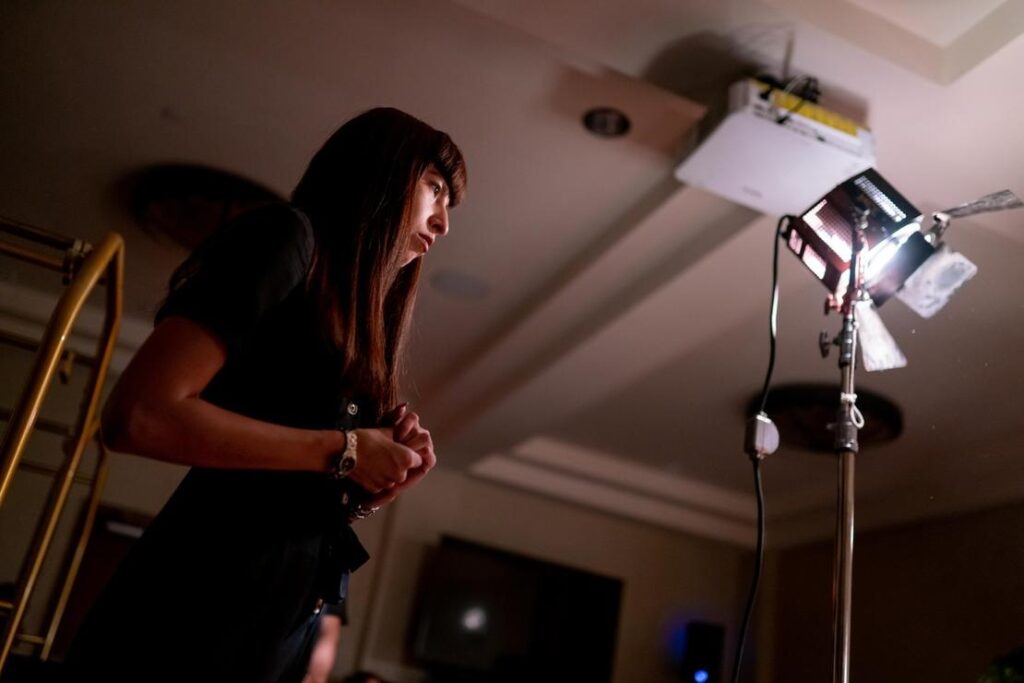
“I Was Afraid I Wouldn’t Be Accepted”: Peshawn Bread on Bringing Her Dominatrix Film to the Native Filmmakers Lab
Peshawn Bread is a Comanche filmmaker and a 2019 Native Filmmakers Lab fellow. Her short film project, The Daily Life of Mistress Red, is about a Native dominatrix for hire who whips apologies out of her white male clients.
When I arrived at the 2019 Native Filmmakers Lab, I was nervous to tell my peers that my story was about a Native dominatrix for hire.
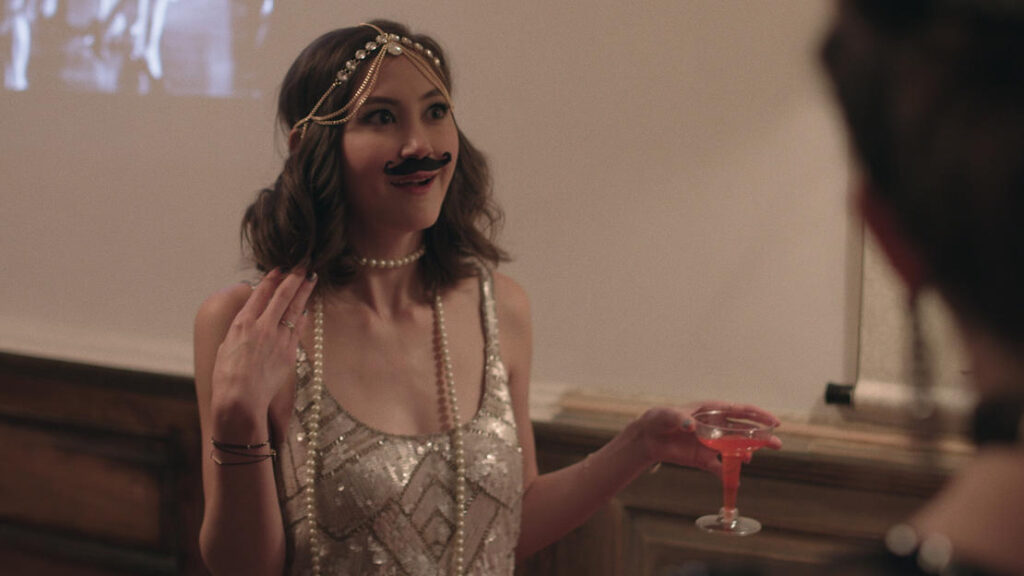
‘I Knew People Wanted to See It’: The ‘In Reality’ Team on Why and How They Self-Distributed
In part one of this interview, In Reality writer/director/star Ann Lupo and producer Holly Meehl shared how they got their anti-romantic comedy feature off the ground. In this second and final part, we explore how they navigated self-distribution.
Were you building an audience along the way? How did you keep people engaged?
AL: During post-production I took on a side project editing a short for Casey Neistat called “Filmmaking is a Sport,” and it completely changed my perspective on YouTube.
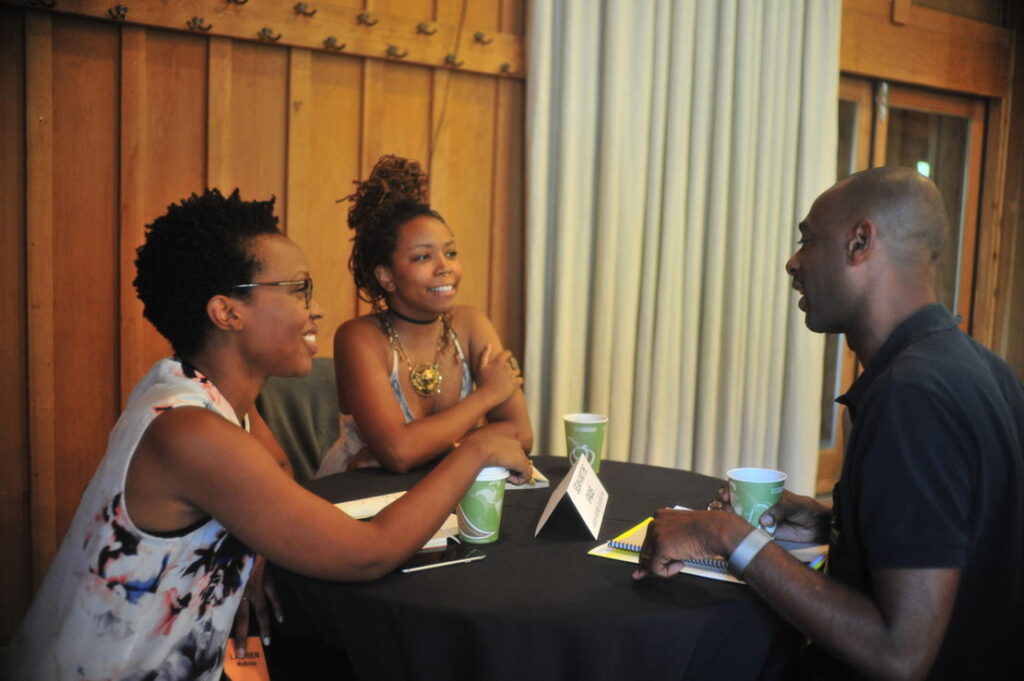
Independent Producers, Industry Advisors to Convene at 2019 Sundance Institute Creative Producing Labs & Summit
Los Angeles — Sundance Institute today announced Fellows and Advisors for the five-day 2019 Creative Producing Labs, as well as the three-day Creative Producing Summit which immediately follows; both take place at Utah’s Sundance Mountain Resort. The Labs begins July 29, and the Summit August 2. These are the flagship convenings for the Institute’s Creative Producing Program, which champions and develops current and rising generations of producers across fiction and nonfiction film.
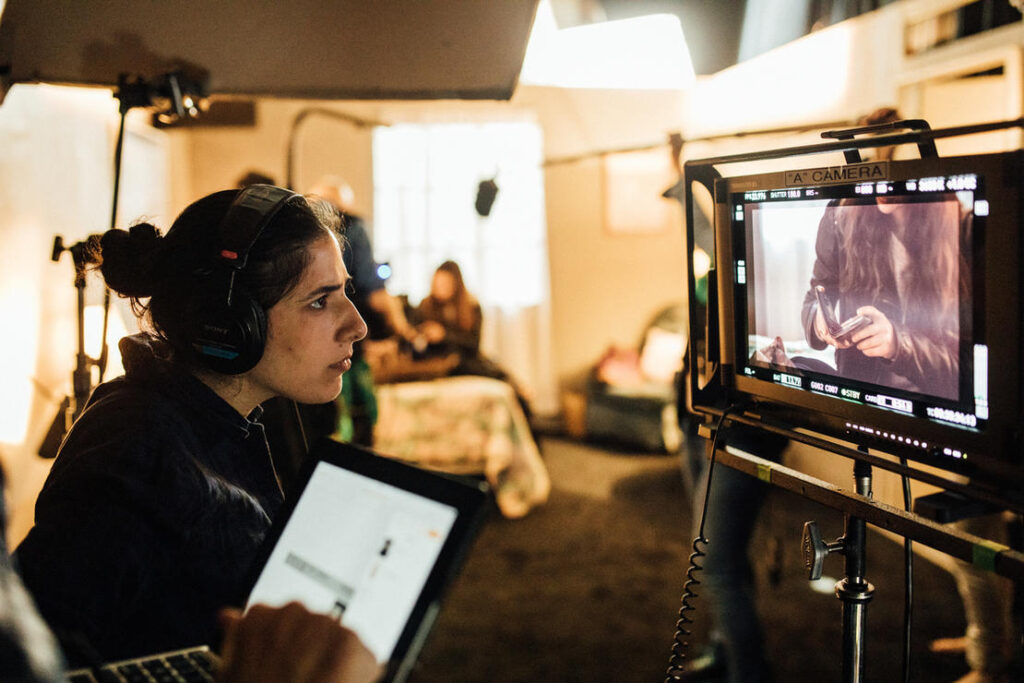
Chasing “The Thing”: Sundance Institute Fellows Describe Their Directors Lab Experience in 3 Words
What’s it like going through Sundance Institute’s signature summer labs? We caught up with a few of the 2019 Directors Lab fellows to get their quick takes on what it was like to fine-tune their projects with support from world-renowned creative advisors and fellow directors in the Utah mountains.
Joey Ally
Joey Ally works with actress Whitney Palmer on set. © 2019 Sundance Institute | Photo by Dan Campbell
Joey Ally stars in her musical, surrealist project The Hater as Dorothy, who gets fired for her liberal extremist views and retreats to her conservative Texas hometown, where she ends up going undercover as a Republican to run against her childhood bully for state congress.
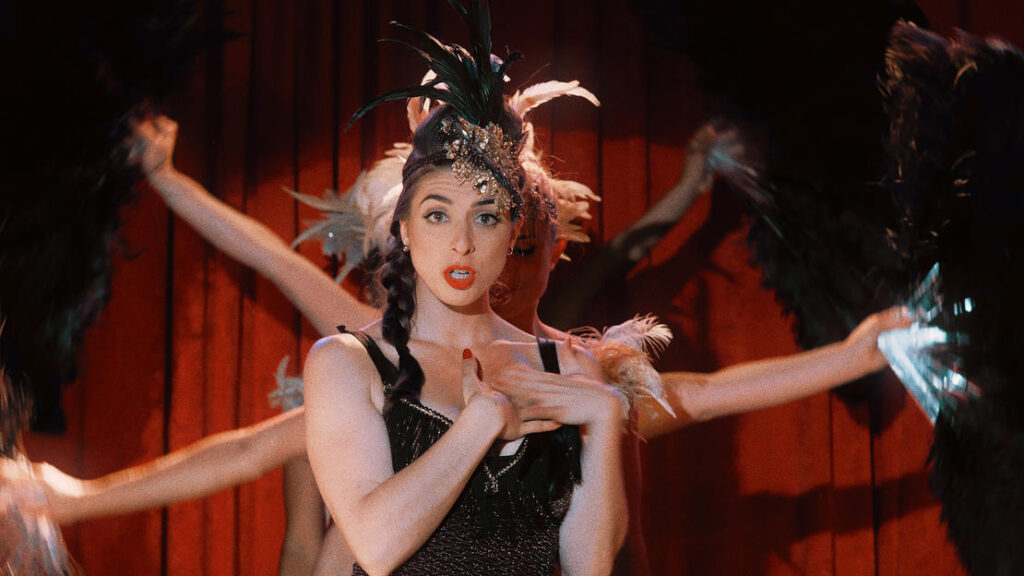
From Short Film to Unexpected Feature: How ‘In Reality’ Came to Life
Liz Manashil is a filmmaker and former manager of Sundance Institute’s Creative Distribution Initiative.
A few months ago, before I had a baby, I encountered the anti-romantic comedy feature film In Reality, which I immediately fell for. As I told the filmmakers later, it was the movie I needed when I was in my early 20s.
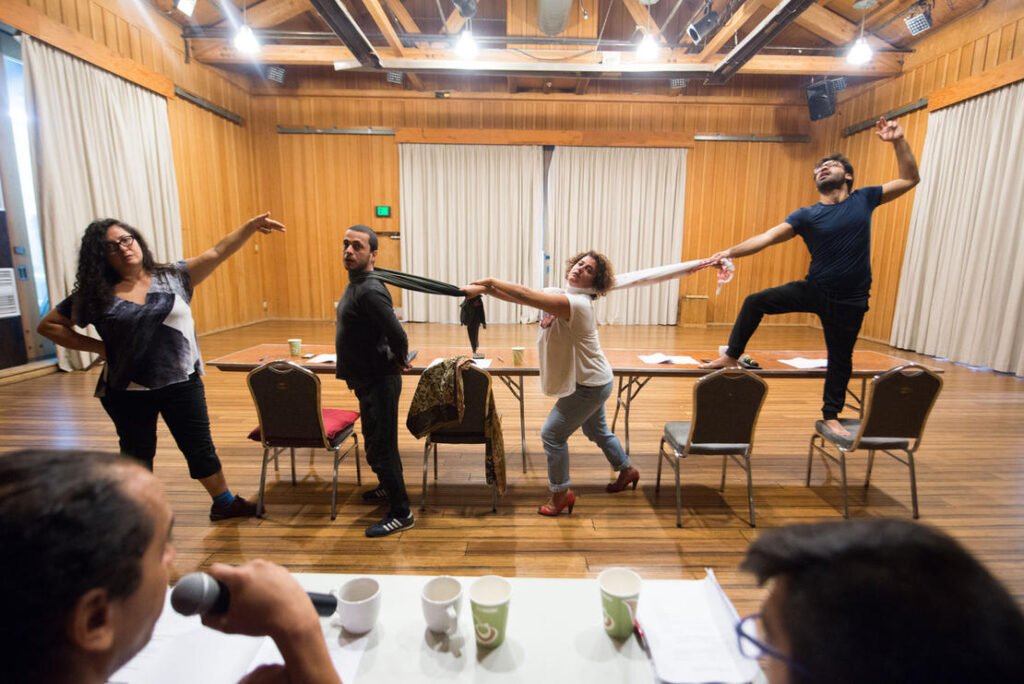
Sundance Institute Announces 2019 Theatre Lab Acting Company, Dramaturgs and Advisors
Jesse Alick, Rachel Hauck, Lisa Kron, Amauta Marston-Firmino & Others Join Creative Team
Acting Company to Include Cherise Boothe, Elise Kibler, Tony Plana, Ari’el Stachel & Others
New York — Sundance Institute’s 2019 Theatre Lab convenes Monday, July 8; the Institute announced
this year’s participating acting company and creative advisors today. The Lab, which runs through July 28 at Utah’s
Sundance Resort, will be led by the program’s Director,
Christopher Hibma in collaboration with
Manager
Ana Verde; the
eight projects were selected by Hibma and former Theatre Program Artistic Director
Philip Himberg,
with support of a
six-member Advisory Committee. At the 2019 Lab, Hibma will collaborate with director and Theatre Lab alumna
Lisa
Peterson
, who will serve as Guest Artistic Director and Jumana Al-Yasiri will join in her
capacity as Manager for the
Program’s Middle East / North Africa year-round initiatives.
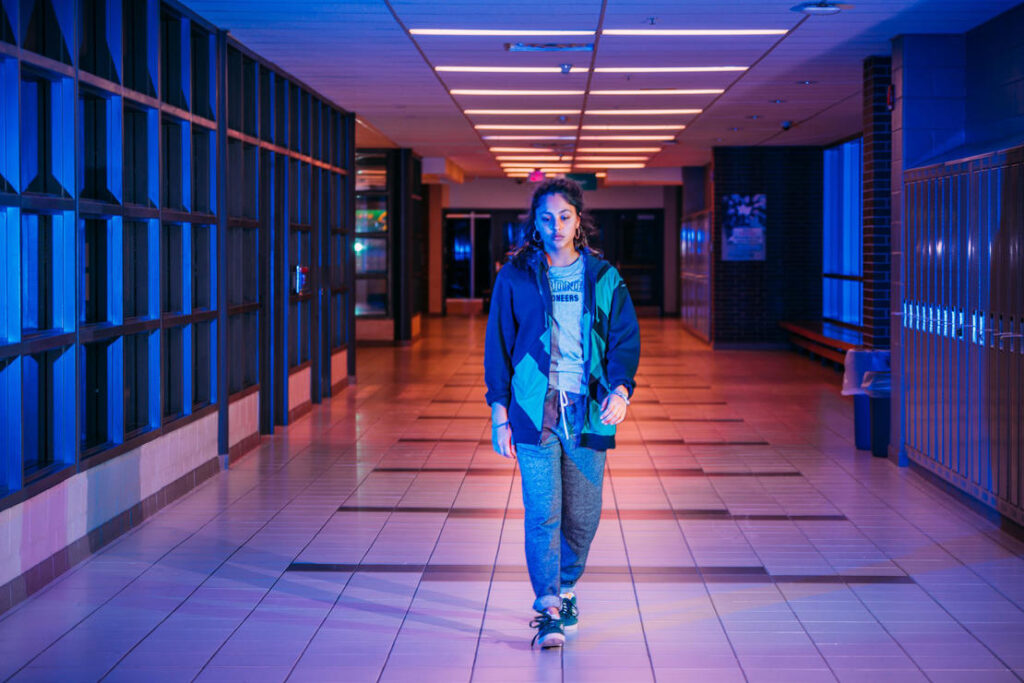
What to Watch in July
After the record-breaking sales of the 2019 Sundance Film Festival, Festival films are steadily rolling out for the summer. This month, escape the heat—in theaters or on the couch—and catch four brand-new Festival releases.If you’re looking for a multi-award-winner, look no further than Pippa Bianco’s Share; it came out of the Festival with both a U.
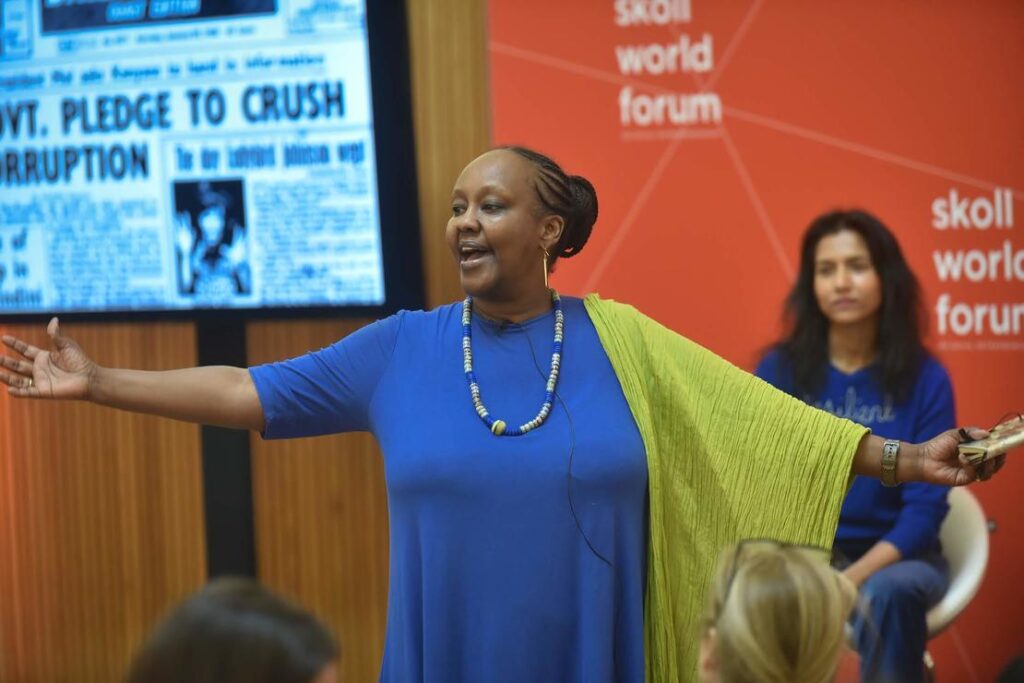
From Art to Impact: How Stories Can Create Meaningful Change
Storytellers came together at the 2019 Skoll World Forum to discuss how their work can have a tangible impact on the greater culture.
Artists hope that their work causes meaningful change in individuals and societies—but can art truly catalyze positive social change, or is it simply a reflection of the culture? This question was posed to artists and attendees at a town hall event sponsored in part by Sundance Institute at this year’s Skoll World Forum, which brings together social entrepreneurs and thought leaders to work towards solving global challenges.
The town hall was put on in partnership with For Freedoms, an organization that aims to use art to drive creative civic engagement, discourse, and direct action.
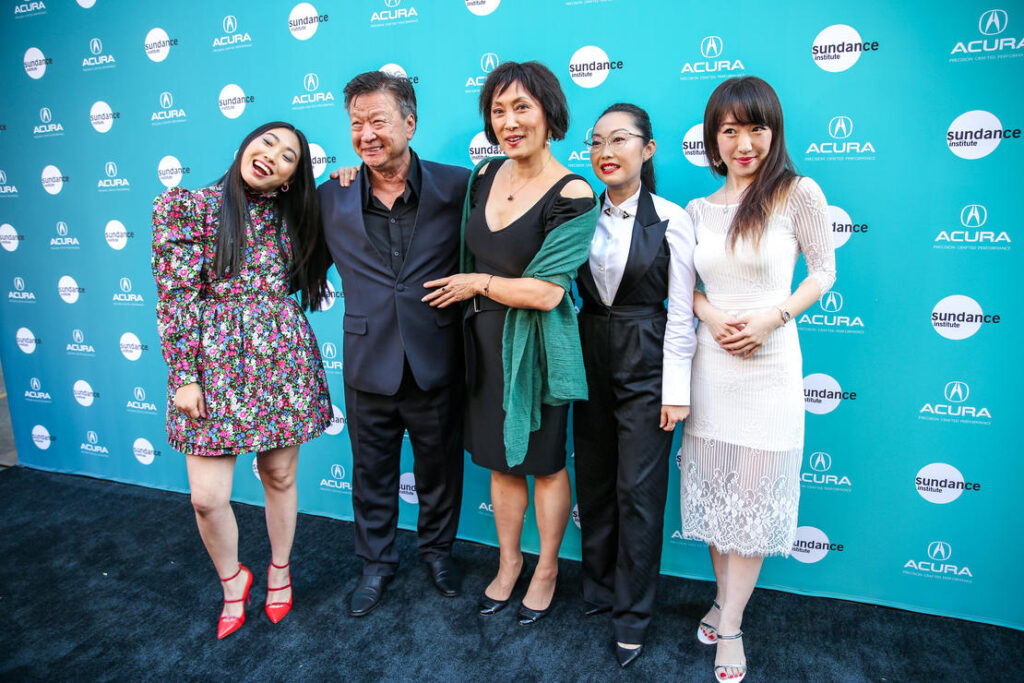
Sundance Institute Honors Lulu Wang with Vanguard Award at LA Premiere of ‘The Farewell’
The Theatre at Ace Hotel was buzzing last night as the independent film community came together to celebrate breakout writer/director Lulu Wang at Sundance Institute’s LA premiere screening of The Farewell hosted by Acura.
Sundance Film Festival Programming Director Kim Yutani; writer/director Lulu Wang; and actors Diana Lin, Aoi Mizuhara, and Tzi Ma at The Theatre at Ace Hotel. © 2019 Aaron Farley for Sundance Institute
View Gallery
Wang was honored with the Sundance Institute Vanguard Award presented by Acura, which showcases artists whose work and vision represent the highest level of breakthrough innovation, originality, and independent spirit.
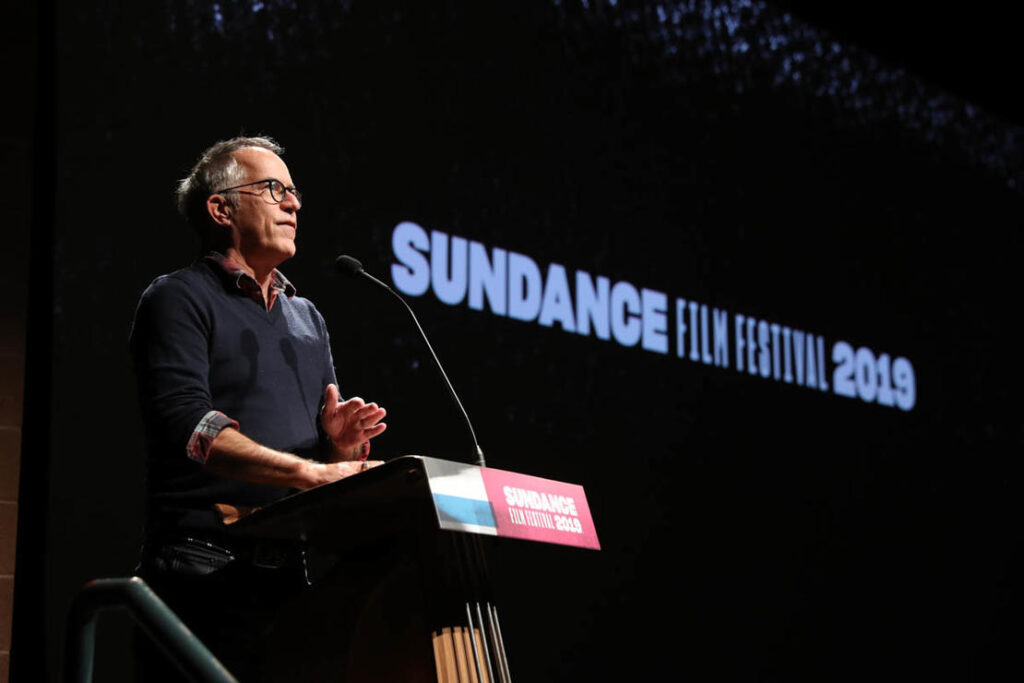
Sundance Film Festival Director John Cooper to Step Aside
Will Assume Newly-Created Emeritus Director Role Following 2020 Festival,
After 30 Years on Staff, 11 as Director
Legacies Include Short Film Category & Competition, New Frontier, Festivals in London & Hong Kong
Los Angeles — Sundance Institute announced today that John Cooper, Director of the Sundance Film Festival, will move into a newly-created Emeritus Director role following the 2020 Sundance Film Festival. 2020 will mark his 30th Sundance Film Festival, and his 11th year as Festival Director.
The new role will focus on special projects and overseeing the 40th anniversary of the Sundance Institute to be celebrated in 2021.
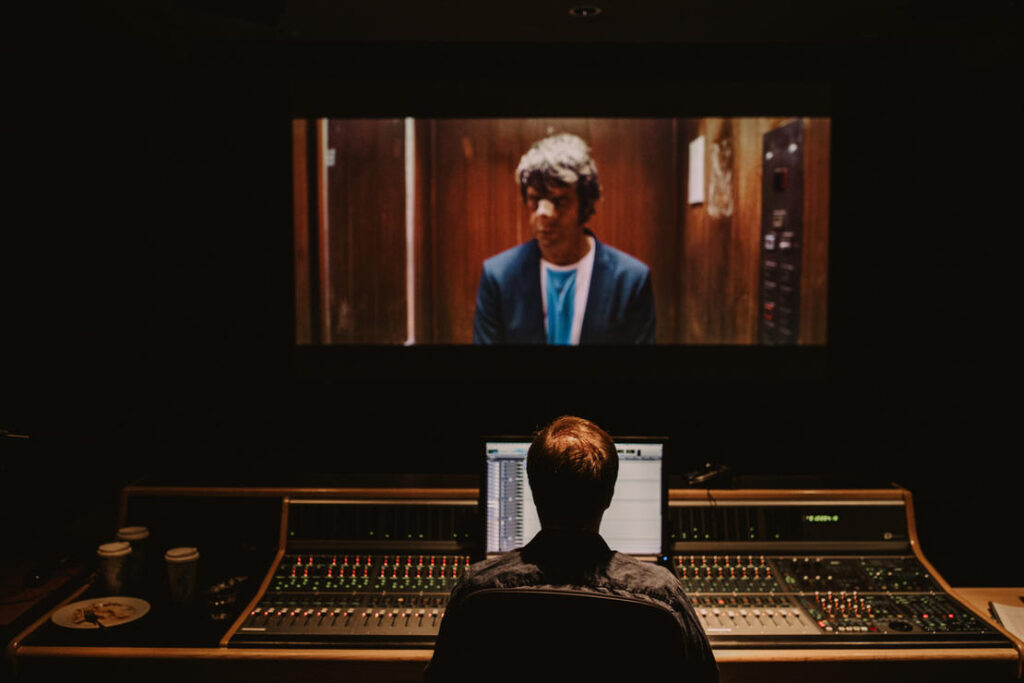
Sundance Institute and Skywalker Sound Announce Composers and Directors for 2019 Film Music and Sound Design Lab
Los Angeles and Marin, CA — Sundance Institute and Skywalker Sound today announced the composers and directors selected for the Sundance Institute Film Music and Sound Design Lab, which returns to the legendary Skywalker Sound Facilities for the seventh year.
At the Lab, composers, directors and sound designers will collaborate to develop music and sound for fiction and nonfiction film projects. Workshops and creative exercises, guided by leading film composers and sound designers acting as Creative Advisors, will mentor Fellows to explore sound and music’s crucial role in storytelling.
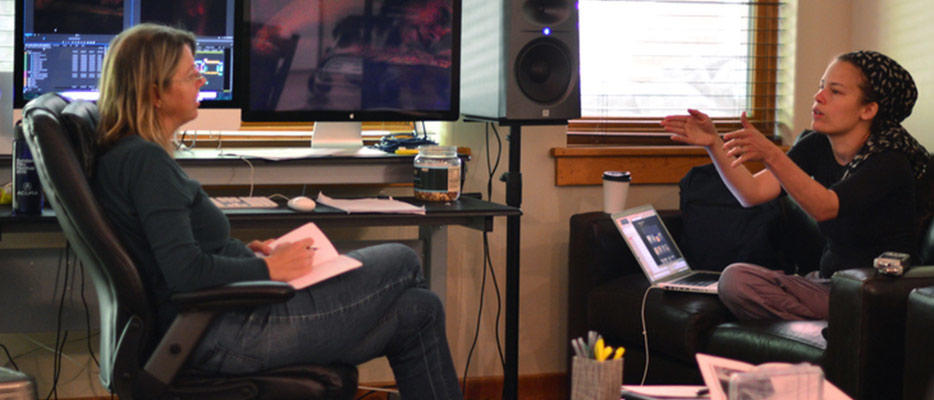
Sundance Institute Announces 2019 Documentary Edit and Story Lab Projects
Nonfiction Projects, All Women-Directed, Range
From Intimate Familial Explorations to Experiments in ‘Speculative Nonfiction’
Los Angeles, CA — On June 21, five boundary-pushing nonfiction film project teams will convene at the Sundance Resort in Utah for the 2019 Documentary Edit and Story Lab, Sundance Institute announced today.
Designed to provide time and space to go deep into the language, form, and meaning of these five independent nonfiction films, the Lab combines director and editor teams in the later stages of post-production, with renowned documentary filmmakers, for the process of reimagining or reconceiving dramatic structures, exploring character and story development, and refocusing around the director’s original animating vision for their work.
Documentary Film Program Director Tabitha Jackson, who oversees the process alongside Labs Director Kristin Feeley, said “By gathering these filmmakers together with some of the field’s most compelling creators, we hope to not only advance their projects through the revelatory process of editing, but also to build community and meaningfully expand the realm of imaginative possibility for the film teams themselves.
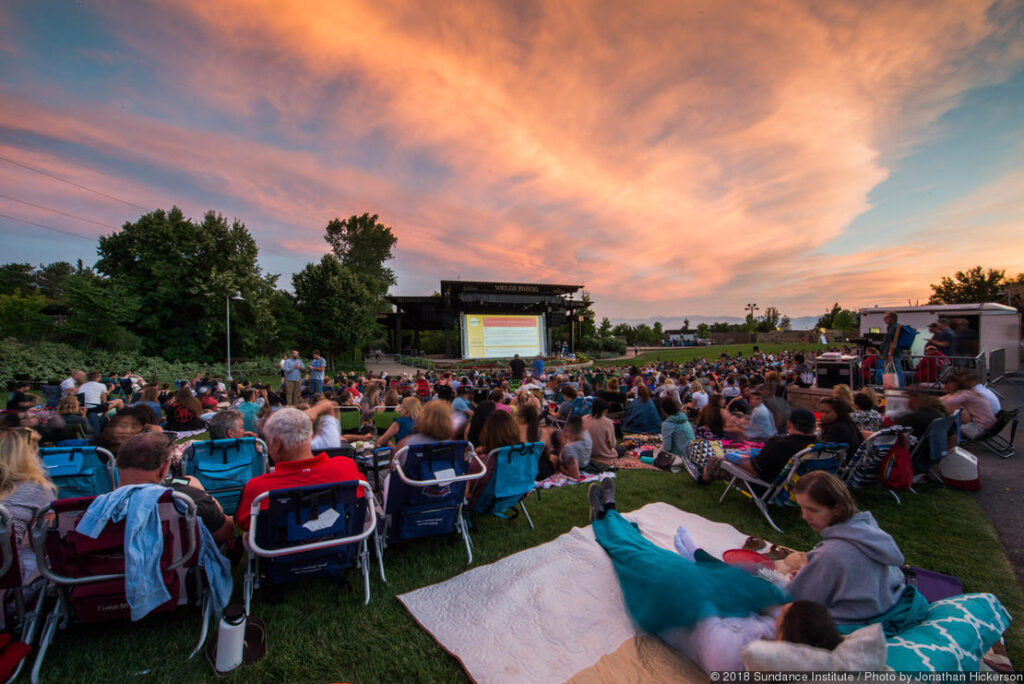
Sundance Institute Brings Free Summer Film Screenings to Salt Lake City, Park City, Ogden, St. George and Coalville
Expanded Summer Film Series Showcases Recent Festival Favorites, Including Get Out, RBG, Hearts Beat Loud and Eighth Grade
Offscreen: Visiting Filmmakers, Games, Contests and a Vote for Final Series Screening at sundance.org/utah
Park City, UT — Summer has finally arrived, which means it’s time for the return of Utah’s outdoor movie tradition, now in its 22nd year! The nonprofit Sundance Institute will once again celebrate the season and Utah’s natural beauty with free screenings of eleven Sundance Film Festival favorites, taking place in Salt Lake City, Park City, Ogden, St. George and, new this year, Coalville.
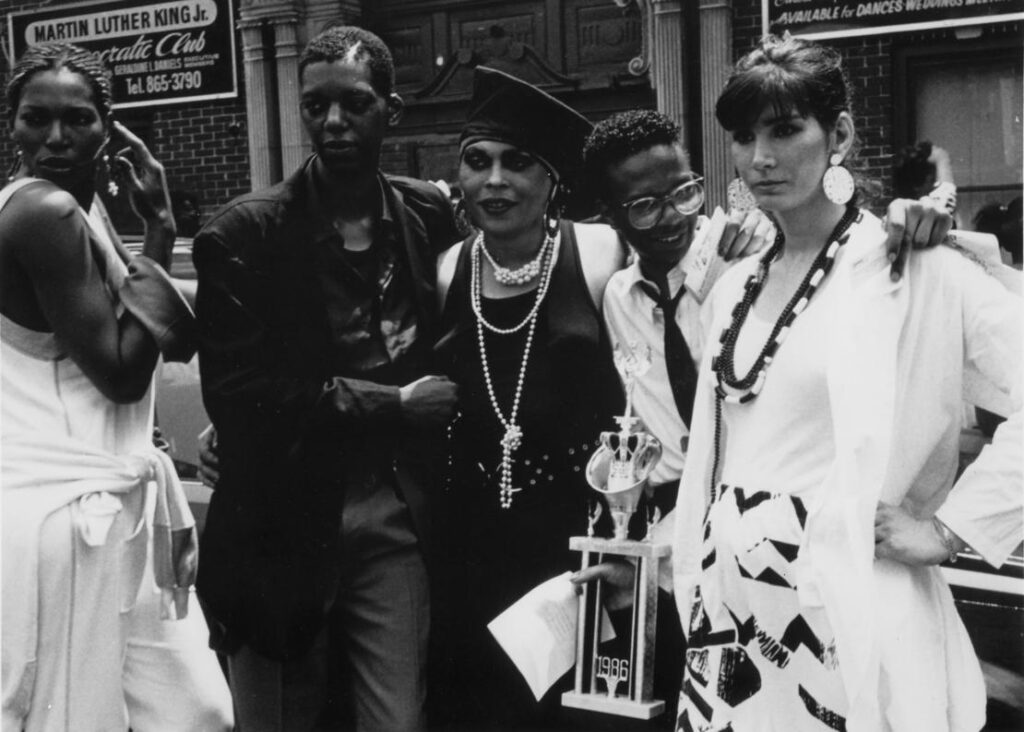
Celebratory Movie Picks for Pride Month
As a popular slogan on shirts and signs at Pride parades around the world says, “The first Pride was a riot.” This year marks the 50th anniversary of the Stonewall Riots, and though the United States has legalized marriage for same-sex couples and a number of other countries (most recently Taiwan) are progressively passing their own legislation ensuring marriage equality, Pride is still revolutionary.
Even in film, celebratory and proud stories still feel rare.
